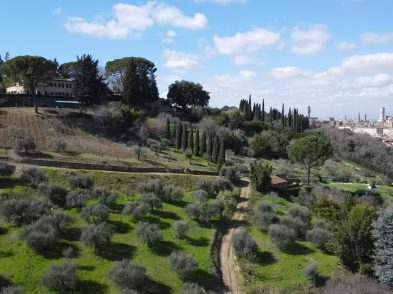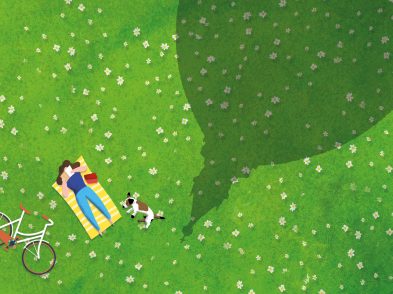On the Friday before lockdown, I sat down for an hour or so with David Bach, one of America’s bestselling financial authors, who’s currently on a “radical sabbatical” with his family in Florence. We spoke about what brought him to our city, his successful career as a financial adviser to women and his upcoming publishing projects.
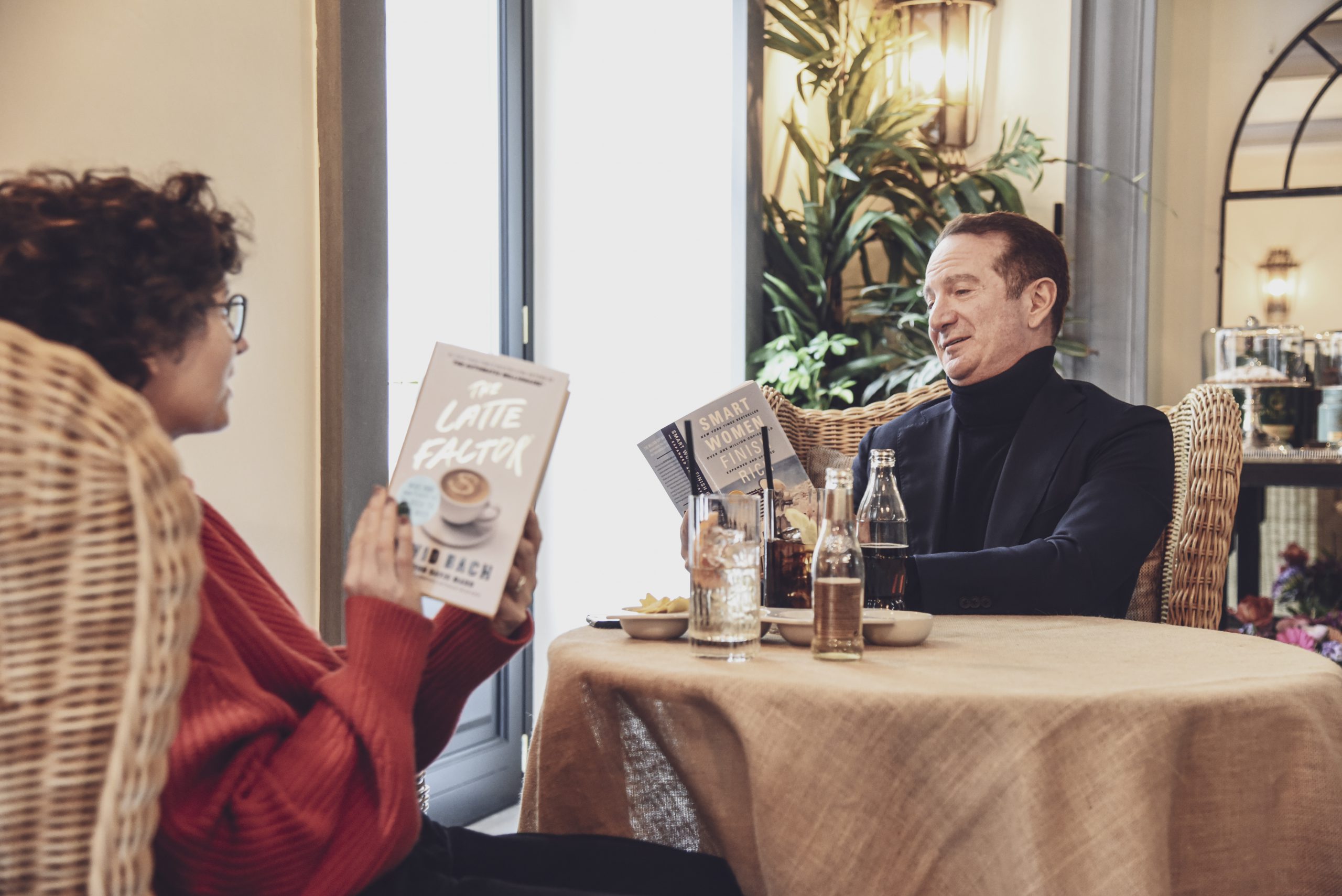
Bestselling financial author David Bach, with The Florentine’s Helen Farrell, at Florence’s Hotel Helvetia & Bristol – Starhotels Collezione, on March 6, 2020 / Photo by Marco Badiani
Helen Farrell: Tell me about your career. How did you go from financial services to becoming an author with ten New York Times bestsellers?
David Bach: It all started with my grandma Rose Bach, who helped me buy my first stock. She was ahead of her time. She didn’t have a college education; she sold wigs at Gimbel’s department store, had no money and was broke at 30. My grandfather had a blue-collar job and they were just getting by, so my grandmother took charge of the family finances. She started by saving 50 cents a week in a coffee can and then started investing. Over her lifetime, she became a self-made millionaire and a pretty sophisticated investor. She got my dad excited about investing and he became a financial advisor.
The way my dad got clients was by teaching classes, so I started teaching classes with him. And in the first few months of working with him, we had three clients die, all men. So I sat in three meetings with three widows over a very short period of time, with my father consoling the client, the widow, but teaching them at the same time. He’d say, “OK, here’s what you have.” He showed them how to write cheques. After the third meeting, I asked him why we had so many male clients whose wives were clueless about their finances. And he said, “David, your grandmother was the exception, not the rule.” I told my mom about this, and she told me some really sad stories about her friends getting divorced and being wiped out financially. And I said, “I should teach a class about this.” To which my mom replied, “That’s a great idea. You invite your clients, and I’ll invite my friends.” I rented a hotel room, and 225 registered to come. That was just the first class.
At that class I was asked, “What’s a good book for women and money?” And I was like, “I don’t know if there is one.” And they said, “I want a book on what you just talked about.” Eventually, after teaching the class again and again, people said, “You’ve got to write a book”.
I wanted to empower one million women to take control of their financial lives, so that they can protect themselves, protect their families and teach their kids about money. That was my mission in 1997, and we’ve reached millions and millions of women, but I’m still doing it.
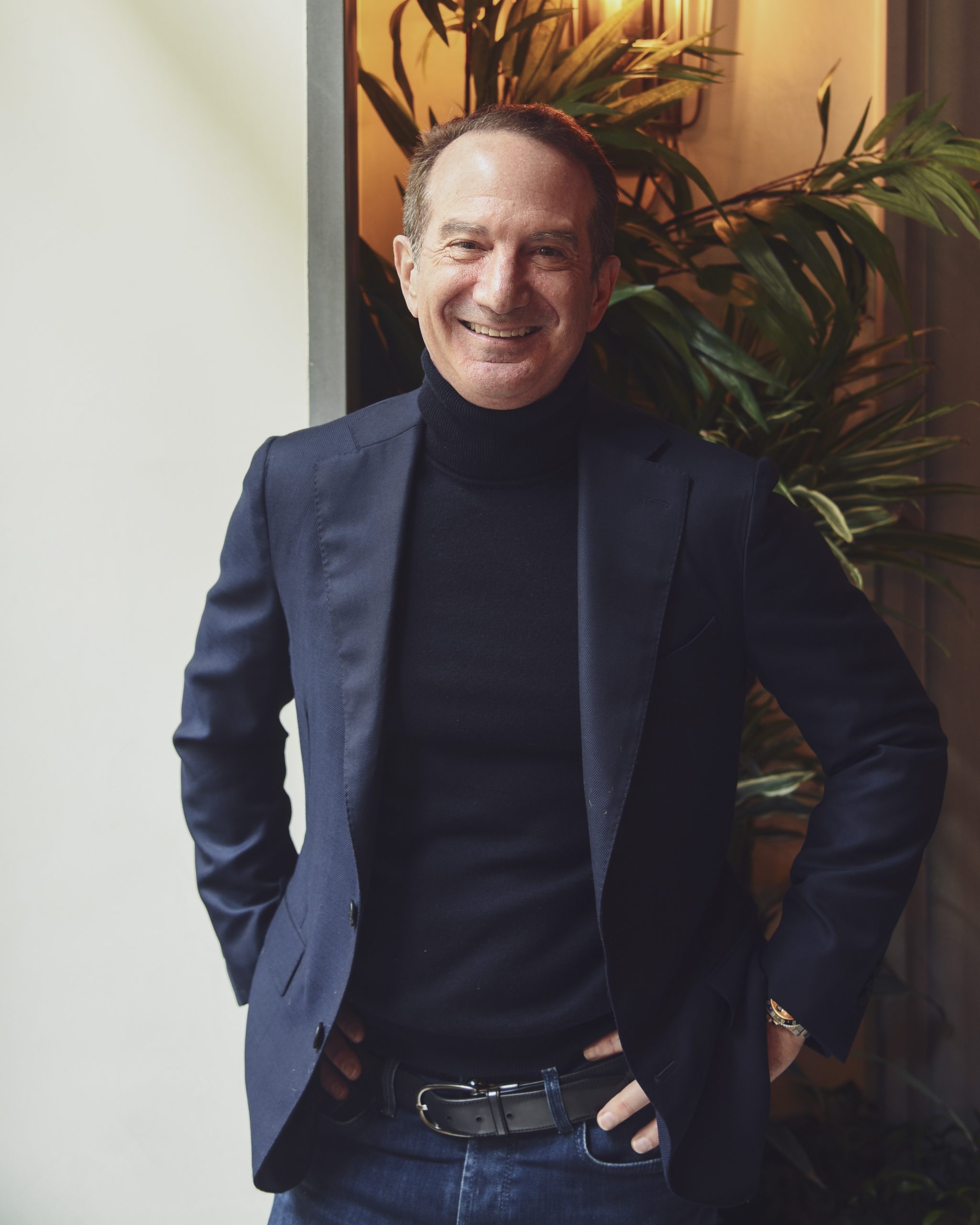
David Bach / Photo by Marco Badiani
HF: Where does Florence come into all this?
DB: A little over two and half years ago, I came home from a trip to Kansas, which is where my financial services company is based. I get on the plane, and this guy sits next to me. He says, “Where are you from and what do you do?” And I say, “I’m in financial services, we help retirees.” He goes, “I’m getting ready to retire in 36 days.” Then he asks me, “What have you got planned for fun?” And I’m like, “What do I have planned for fun?” I asked myself, what would actually be something really fun to do with my family, something that would be transformational? I’ve always wanted to take my family abroad for a year, but that’s where the idea really started.
HF: And you decided that Florence was the place for you?
DB: I was pretty interested in living in Florence, my wife, Alatia, was interested in living in Madrid: we did the whole game of narrowing things down. One day I go online and I find The Florentine. And The Florentine becomes my bible for coming out to Florence. The more I read, the more I realized that we could do this. I’m an American in Europe, there’s an English newspaper; it’s all laid out for us, here are all the people we need to reach out to for help. Helen, I can’t compliment you enough because, speaking as a writer, it’s such a great publication.
HF: Thanks David, it means the world to know that TF makes a difference out there. Has moving here met your family’s expectations?
DB: We arrived here last July and, I have to say, Florence has been an incredibly easy city to move to. The expat community has been unbelievable. We’ve been able to make friends so fast with such interesting, cool people. We’re lucky that our kids go to the International School, so it’s like a plug-and-play community right away. It’s a small town: you meet one person and then you meet this person. We were told it’s not that easy to make friends, especially not with Florentines, but we’ve made friends with tons of Florentines. Everyone has been incredibly kind, welcoming and helpful. We were told that everything’s complicated and that it’ll take you two months to get wi-fi, but we had everything hooked up in a week.
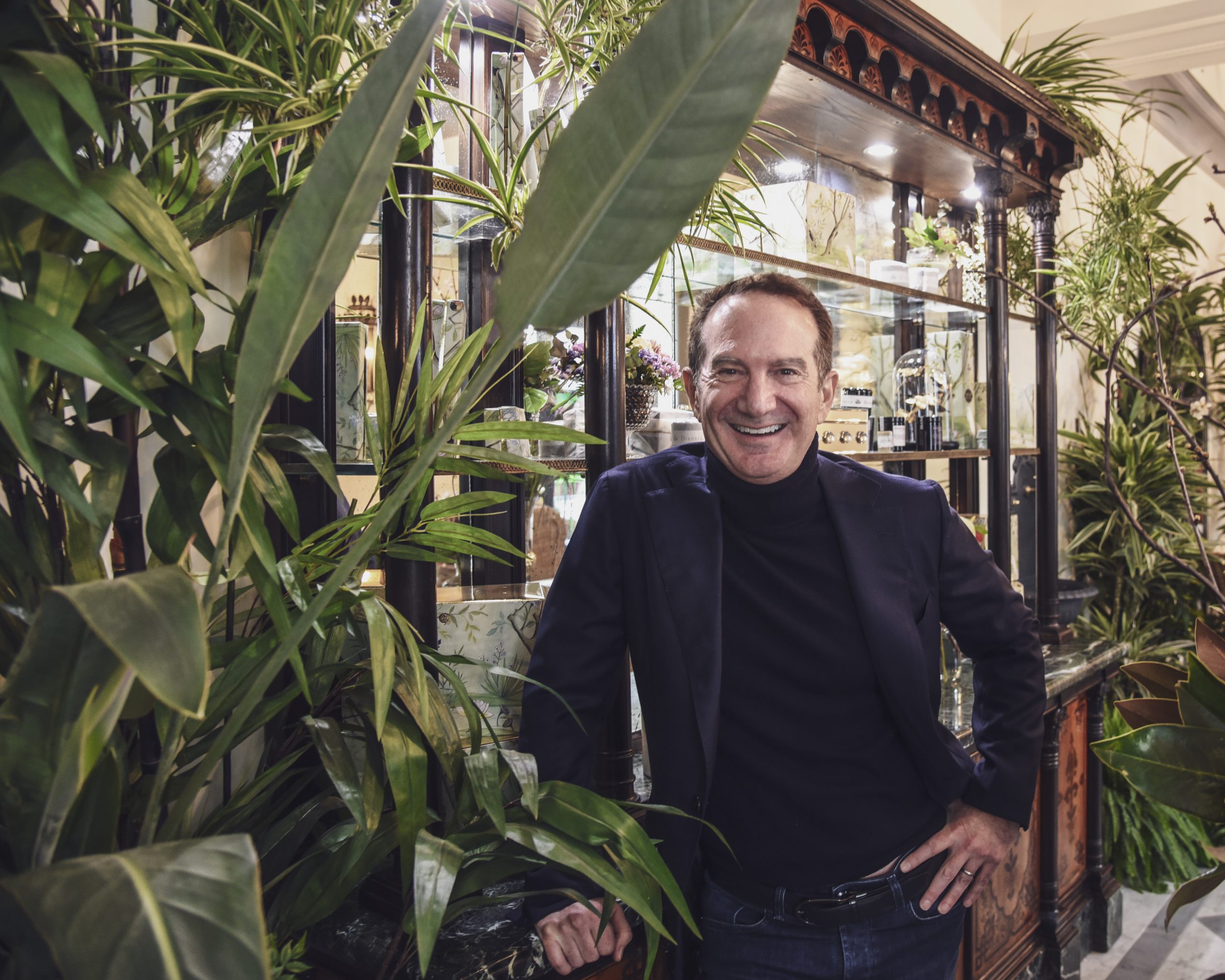
Bestselling financial author David Bach at Florence’s Hotel Helvetia & Bristol – Starhotels Collezione, on March 6, 2020 / Photo by Marco Badiani
HF: What was your first impression of Florence and your second impression after a month?
DB: I came to Florence right after college, on the classic backpacking trip. And I remember being on the Ponte Vecchio, at 21 years old, and staring out on the Arno, and my soul saying, “Someday you have to live here”. It was 20 years before I was back in Florence again, but two summers ago my wife and I found ourselves on the Ponte Vecchio. It was a perfect night in June. And she looks at me and says, “This could work for me. Does it work for you?”
We went to see the International School, which was gorgeous, and so we went, “Hey, let’s do this”. So then the question is, when you arrive, does the fantasy match up? But it’s just been months of pinching ourselves. The feeling of “We’re not visiting, we’re not here for a week and leaving. We live here”. I still get goosebumps. It’s one of the most beautiful places in the world. I think we’re going to stay longer than a year. I’d been hard-charging for three decades, ever since college: I’d lived in LA, then San Francisco, then New York. I was in New York for 18 years; my wife was there for 30. The pace of life here is so much easier, but it still has all these great things; there’s so much to do. From the museums, parks, tours, restaurants, music, you can do five things a day here. You can open up the newspaper and every day there’s something cool to go to. We have a few friends leave because of the virus. I can’t imagine leaving. I’m not ready to leave.
HF: If you feel like this is home, then stay.
DB: What a great place to call home. I could be an ambassador to Florence; I love this place so much. I want to finish the book I’m working on so that I can help support this community. People need to know that they should come back here.
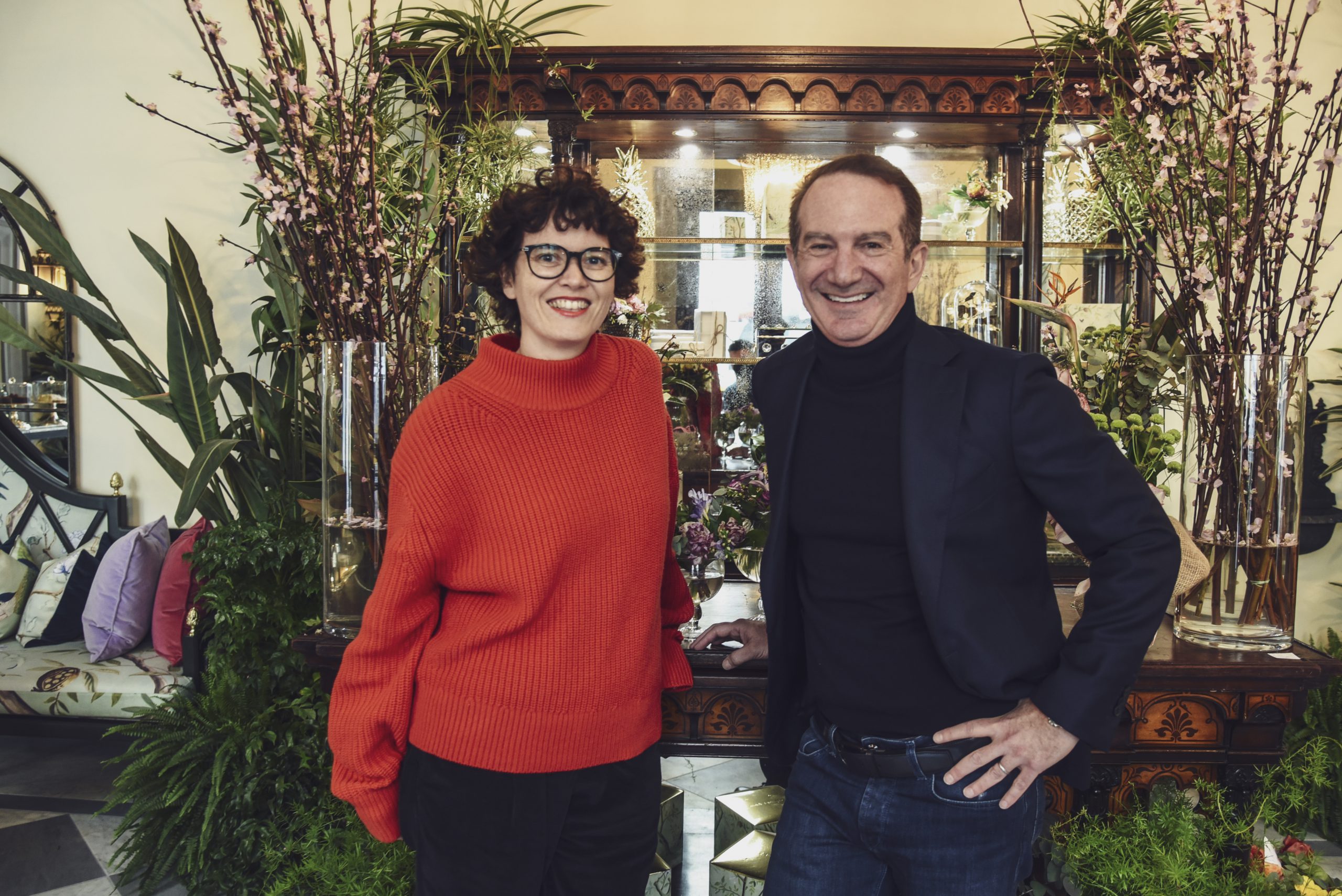
Bestselling financial author David Bach, with The Florentine’s Helen Farrell, at Florence’s Hotel Helvetia & Bristol – Starhotels Collezione / Photo by Marco Badiani
HF: Another book’s in the works. So, it’ll be inspired by Florence?
DB: The working title’s A Year by the Ponte Vecchio, because we live right by the Ponte Vecchio, in via dei Bardi. The idea behind this book—although you should never talk about books while you’re writing them—is like Under the Tuscan Sun, but it’s just my version of moving here with my family to live the dream life of a one-year sabbatical in Florence.
HF: Has the quarantine changed how you feel about living in Florence? (Asked by email on April 28, 2020.)
DB: It has, Helen. I think we were in love with Florence before—and now we’re even more in love. My family and I have felt safe here and grateful during this time to be in such a wonderful country and amazing city. It inspired me to start podcasting about the experience and sharing our hope with the world. I’m now actively promoting Florence in my podcasts, telling people “come visit when the quarantine is done”. I hope I can inspire others to come back to Italy when this is all over and it’s safe to travel. My most popular podcast this year was “This Too Shall Pass”. I recorded it at Palazzo San Niccolò, and it led to a listener booking a wedding for 2021.
David Bach, financial expert and 10x New York Times bestselling author, in conversation with Morgan Fiumi during TF Together & Lungarno Chats
Click here to find out more about David Bach and to order his award-winning books.



